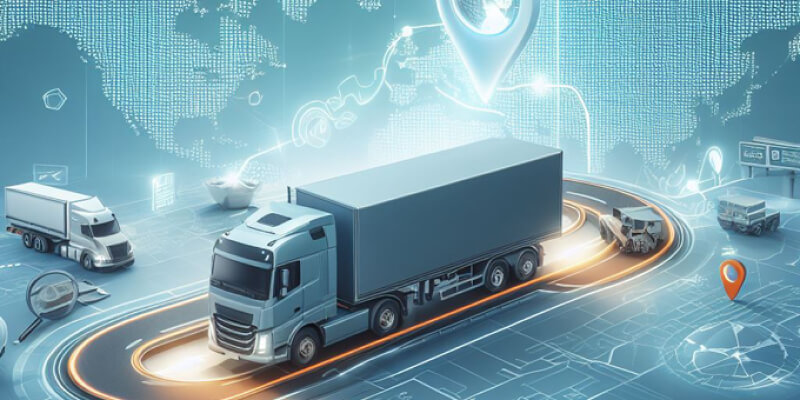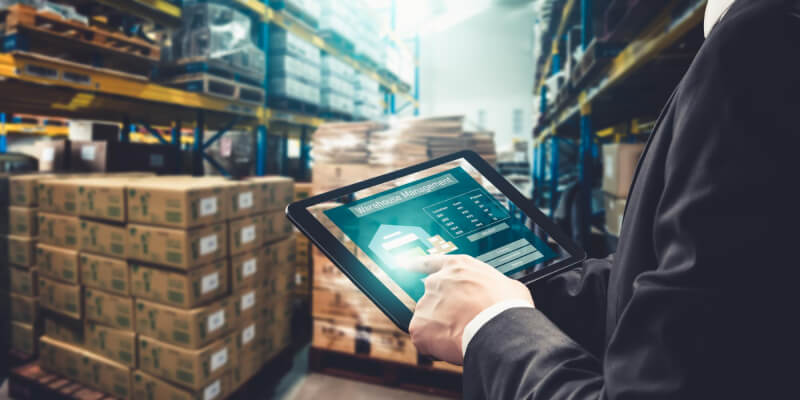Let's Talk About Your Needs
Subscribe Now! Get Awesome Monthly Posts
Make your business more successful with latest tips and updates for technologies
AI \ Use Cases \ Transportation and Logistics Industry

AI analyzes real-time data, including traffic patterns, weather conditions, and delivery priorities, to dynamically optimize delivery routes. By harnessing predictive analytics, the AI algorithm continuously adapts routes, reducing fuel consumption and transportation costs while ensuring timely deliveries. This transformative technology enhances overall operational efficiency, minimizes environmental impact, and improves customer satisfaction. With AI in route optimization, the transportation industry experiences streamlined logistics, reduced operational expenses, and a significant boost in resource utilization.

AI-driven inventory management tackles inefficiencies. Leveraging machine learning, the system forecasts demand, adapts to seasonality, and analyzes historical data. This allows for precise inventory optimization, preventing overstock or stock outs. The solution ensures timely restocking and reduces holding costs. Enhance the industry’s agility, enabling businesses to meet customer demands efficiently, maintain competitive pricing, and ultimately boost operational effectiveness. Utilize AI for intelligent warehouse management, optimizing storage layouts, and automating inventory control. AI algorithms can predict stock levels, automate restocking processes, and even guide robots for picking and packing, significantly improving warehouse operations’ efficiency and accuracy.

Implement AI-driven platforms to revolutionize customer service in logistics. These platforms can automate responses to common inquiries, provide real-time updates on shipments, and even predict and resolve issues before they affect the customer. This proactive approach to customer service not only enhances the customer experience but also reduces the workload on customer service teams.

Automated freight matching powered by AI and Robotic Process Automation (RPA) revolutionizes logistics. Traditional inefficiencies in cargo allocation often result in wasted capacity and delays. Employing AI algorithms alongside RPA streamlines the process, analyzing real-time data to optimize freight matching. This ensures faster and more accurate assignments of shipments to carriers based on factors like destination, cargo specifications, and available transport capacity. Integration of AI-driven automated freight matching in supply chain ensures a seamless, efficient, and cost-effective delivery process, addressing resource underutilization challenges while enhancing overall logistics performance.

Machine learning algorithms analyze real-time traffic, weather, and road conditions, optimizing routes for fuel efficiency and minimizing delivery times. Generative AI adapts to dynamic environments, enhancing decision-making in complex situations. With reduced human errors, accidents, and fatigue, these autonomous vehicles ensure safe and efficient cargo transport, transforming the logistics sector. This innovative use of AI not only streamlines operations but also contributes to a sustainable and cost-effective future in the transportation industry.

The transportation and logistics industry face uncertainties due to weather conditions, geopolitical events, and other risks that can disrupt operations. To solve this issue AI-powered risk management analyzes historical data, current conditions, and global events to predict potential risks. This allows the industry to implement proactive measures, such as route optimization, inventory adjustments, and contingency plans, minimizing disruptions and ensuring efficient operations. AI’s predictive capabilities enhance decision-making, reduce financial losses, and improve overall resilience in the dynamic landscape of transportation and logistics.